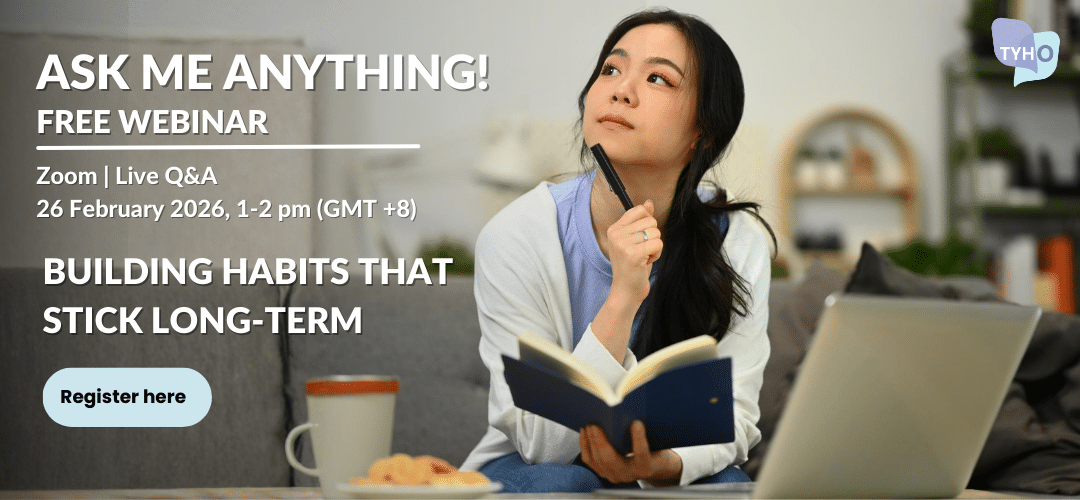- Updated on 8 July 2024
Tags: depression, relationships, couples counselling
Dating someone with depression can be stressful at times. Perhaps you’ve tried different ways to help your partner, but their depression seems to go on without end. This can be frustrating and leave you feeling helpless. Both parties may find themselves getting physically and emotionally tired too.
It need not be that way, though.
Given how common depression is, many of us might have partners who struggle with it. With the right knowledge and resources one can still foster a strong relationship.
This article introduces some tips on how to better extend support to a partner with depression.
Increase Your Knowledge About Depression
The term “depression” is often used loosely. If you think you are dating someone with depression, it is imperative to recognise what depression is and what it is not. Has your partner been diagnosed with depression (a mood disorder), or is it sadness, an emotion that comes and goes, they are facing?
According to the American Psychological Association (APA), depression is a negative affective state that ranges from unhappiness and discontent to more extreme feelings of pessimism and despondency. Given its complexity, a mental health professional is best placed to assess, diagnose, and treat it.
Depression is not a personal choice. One neither chooses to have depression, nor can they manage the condition by deciding to “snap out of it”. In fact, many wish to stop feeling the way they do, but are unsure about how to do so. As such, keep in mind that your partner’s depression is neither your fault nor theirs. Their depression is also not a statement about you as a person.
Learn How to be a Better Listener
Ever heard your partner say “You just don’t get it” in the midst of an argument? Feeling unheard or not understood in a relationship can incite feelings of abandonment.
The next time your partner gets upset and shares their viewpoint, try listening to what they have to say instead of defending yourself immediately. Thereafter, paraphrase their viewpoint to check if you have understood them. You may even go one step further by verbalising their feelings. You can, for example, say “What I’m hearing is that you had hoped for me to return home on time as promised, but I was late, and you feel let down. Did I understand that right?”.
When our loved ones share their difficulties with us, it is a common tendency to jump in with a solution. After all, it only seems logical to do so, doesn’t it? It then comes as a surprise when your loved one does not seem to take your advice too well.
Sometimes, all your loved one needs is your company or emotional support. In such situations, providing a “quick fix” may inadvertently dismiss their feelings and experiences instead.
How then, can we tell if our loved one prefers advice or a listening ear in any given moment? Ask them.
If your partner is talking about something that is important to them, give them your full attention. Remove unnecessary distractions. This may include turning off screens (eg television, mobile phone, or laptop) and pausing any other tasks. Ensure that your body language reflects your interest in hearing what they have to say.
Accept That the Journey Ahead May Be Challenging
Managing your own expectations is an important, but often overlooked aspect. If you are expecting your partner’s depression to be resolved overnight because a new suggestion was introduced, you might be in for a disappointment.
Dating someone with depression requires patience and composure. Change takes time and hard work. Different things work for different individuals – your partner may need time to trial and error with what works and what doesn’t.
Adjust your mindset, stay sensitive, and set realistic expectations. This way, you’ll save yourself from unnecessary frustration and disappointment.
Don’t Forget to Take Care of Yourself Too
Just because you are dating someone with depression doesn’t mean that your needs are less important. Your emotions and experiences are equally valid. Self-care looks different for everyone, so it is important to know how to “top up your emotional tank” when you feel drained or stressed.
What are your hobbies or interests? Some people enjoy yoga, a HIIT class, or cycling. Others might enjoy taking a walk, reading a book, watching a film, or playing a video game! Be creative about what works best for you.
If your schedule is usually packed, be intentional about finding pockets of time to take a break. If you don’t take care of yourself, you won’t have the capacity to be there for others.

Seek Help
There are various causes of depression. This includes life transitions, health conditions, the death of a loved one, social isolation, genetics, factors relating to brain structures and pathways, among others. Depression may also have many simultaneous contributing factors.
The good news is that depression is treatable. People can sometimes be hesitant to seek professional help due to the stigma surrounding mental health issues. Hiding depression, however, does not make it “less real”.
On the contrary, early diagnosis and treatment can be helpful in relieving symptoms and preventing the depression from exacerbating. There are actionable steps that can be taken to manage depression.
Encourage your partner to consult their primary healthcare provider, a psychiatrist, a psychologist, or a counsellor, to improve their well-being.
This next point might sound surprising, but seeking help applies not just to your partner, but to you as well. Dating someone with depression can be stressful, tiring, and emotionally draining at moments. Over time, you may have even unknowingly put your needs aside in order to prioritise those of your partner.
If you find that other areas of your life are starting to get affected, such as your sleep, appetite, work or social life, or you experience difficulty coping, a therapist may be able to support you in regulating your emotions and building coping skills. If your partner is resistant to therapy, seeing a therapist yourself is also a way to normalise seeking external support. Couples counselling is another option that can help with the communication between your partner and yourself.
Takeaway
If you are wondering how to better care for a partner with depression, you are definitely not alone. Depression can be draining not just for the person experiencing it, but for their loved ones too. Depression can take a toll on relationships, personal life, and work.
While each individual’s experience of depression is unique, knowing more about what depression is and what it is not can be helpful. It provides one with a general sense of what to expect, as well as what can be done to manage symptoms better.
It is also important to recognise when it might be beneficial, or even necessary, to reach out for professional help.



